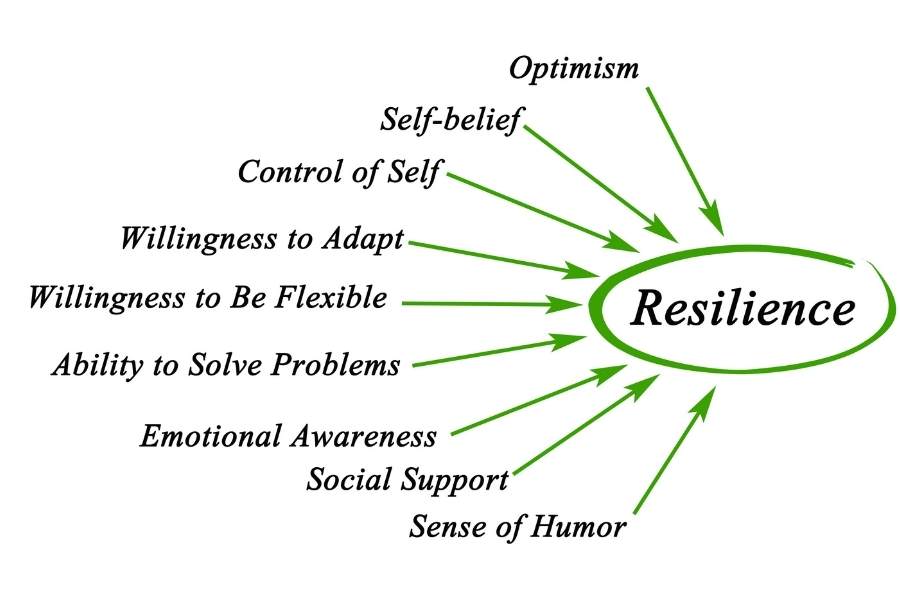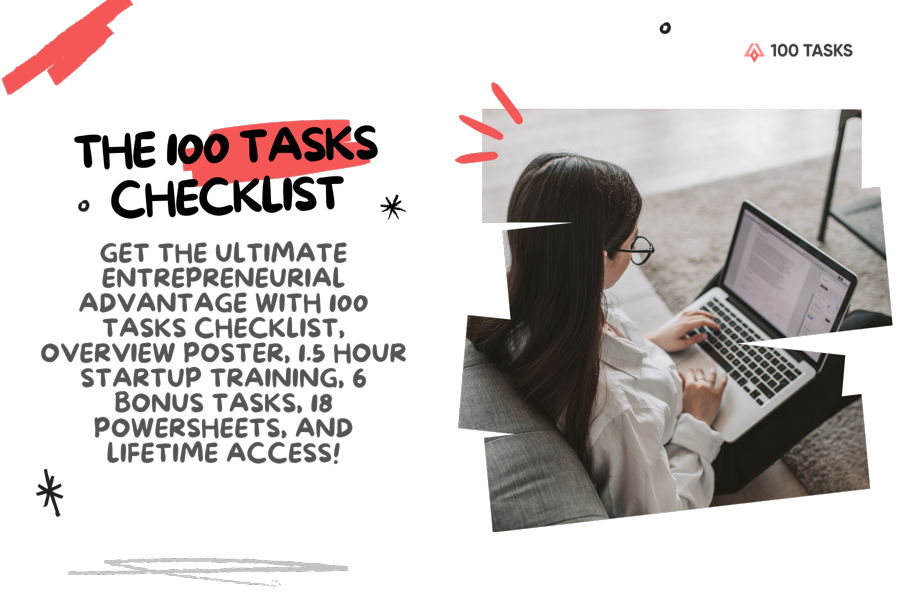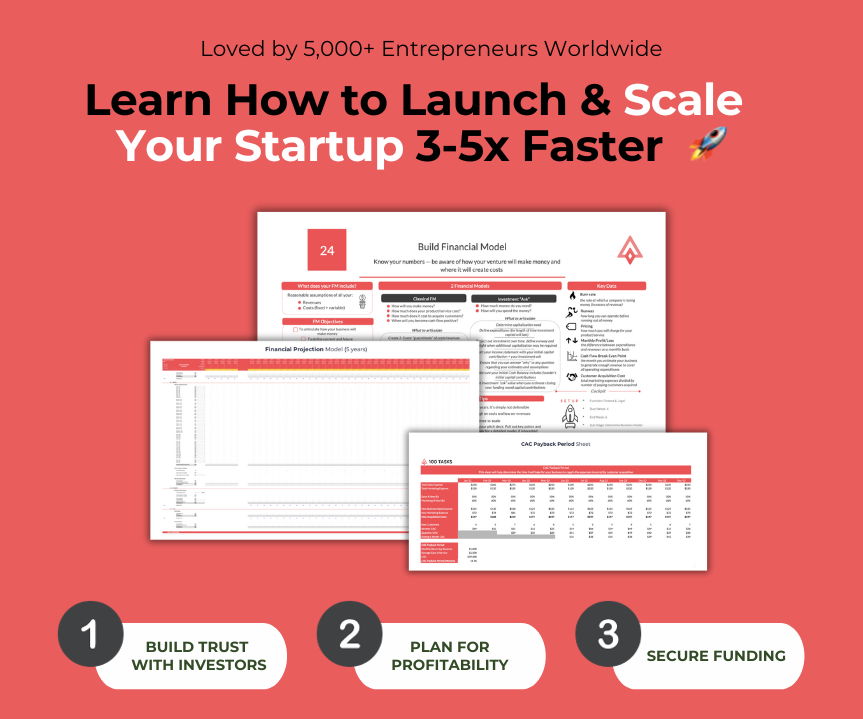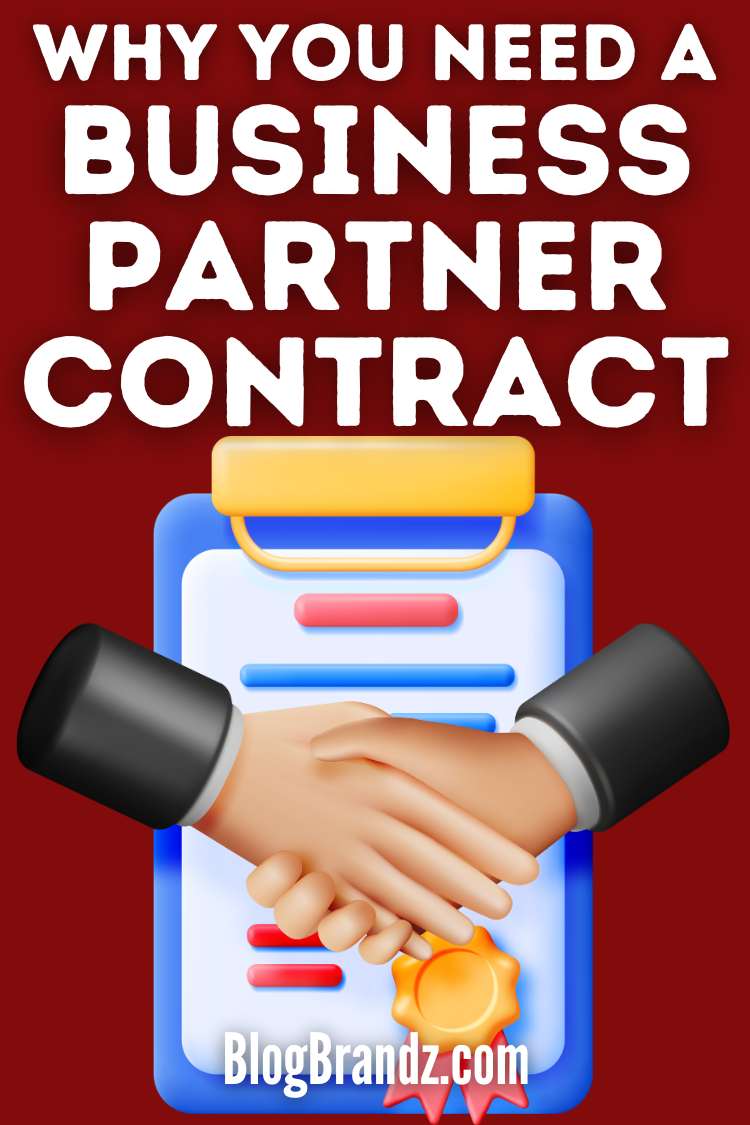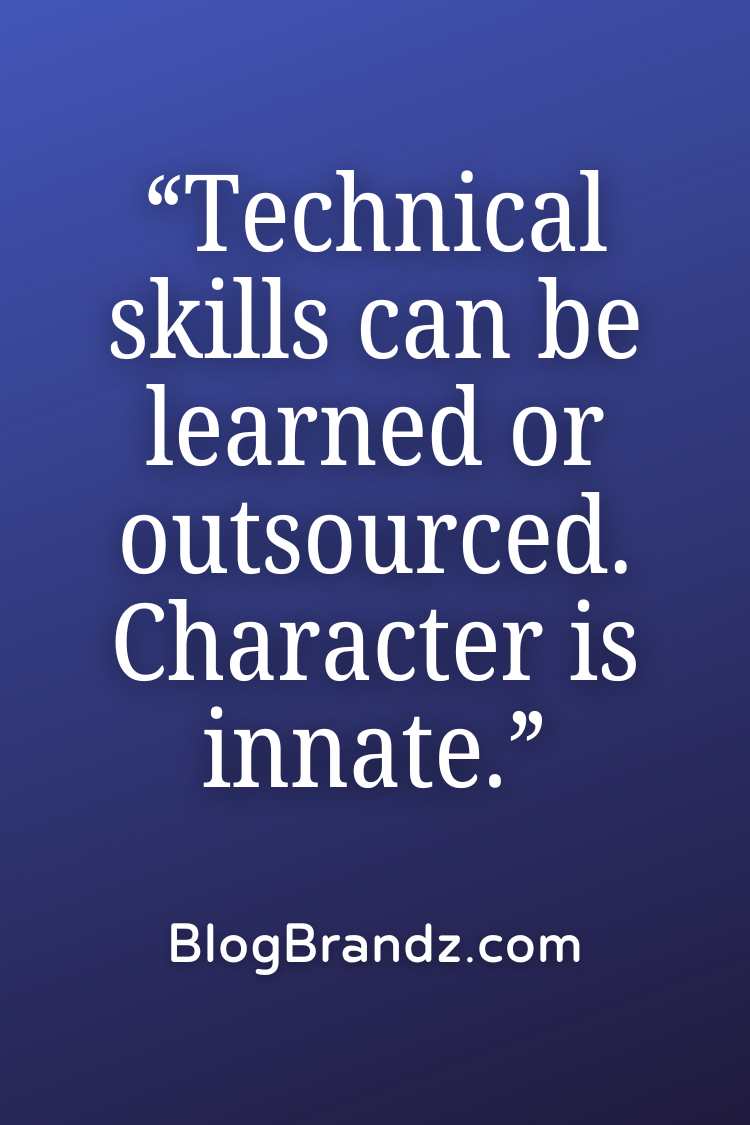
Learn how to find a business partner for a startup and look for business partners with integrity, resilience, and a shared vision for entrepreneurial success.
Finding a business partner in entrepreneurship is a bit like finding a unicorn — elusive, magical, and potentially life-changing. Sure, you could go it alone, but why not double your chances of success and halve the workload?
For entrepreneurs looking for business partners, finding individuals who share your vision, values, and commitment to the venture is crucial, ensuring a strong foundation for collaboration and long-term success.
As a savvy entrepreneur with a dream, you and your partner could be an unstoppable force, ready to take on the business world. But finding that perfect partner? Well, that’s where the adventure begins.
In this article, we’ll show you how to navigate the jungle of business partnerships, from defining your needs to screening candidates. So grab your binoculars and safari hat, because we’re about to embark on the wild ride of finding the perfect business partner.
Contents
What is a Business Partner?
A business partner is an individual or entity that collaborates with another party in a savvy entrepreneur with a dream.
Partners typically share the business profits, losses, and responsibilities based on their agreement. They may contribute capital, expertise, or resources to the partnership and work together to achieve common business goals.
Business partners can be individuals, companies, or other organizations, and their partnership is governed by a legal business partner agreement that outlines their roles, responsibilities, and rights within the business.
Why Character Beats Skills in Business Partnership
If you’re starting a business and are looking for a business partner, you need someone who’s not just a whiz with numbers or a coding genius, but someone who brings more to the table.
Because let’s face it, while technical skills are valuable, they can be learned or outsourced. However, two things can’t be bought or borrowed: attitude and integrity.
These qualities are intrinsic to a person and can make or break a partnership. After all, you can’t outsource a positive attitude to a freelancer in another country.
So, when finding a business partner, remember that skills can be learned, but character is inherent.
“Skills can be learned or outsourced. Character is innate.”
10 Qualities to Look for in a Business Partner
Now that we’ve established the importance of attitude and integrity in a business partner, let’s dive into the key qualities you should look for when choosing the perfect match for your entrepreneurial journey.
#1. Positive Attitude
When things get challenging (as they inevitably do in business), having a partner who remains optimistic can be like having a beacon of light in a dark tunnel. Positivity is infectious, lifting spirits and keeping morale high even when everything is falling apart.
Plus, an optimistic outlook often comes with a problem-solving mindset, meaning your business partner will be more likely to look for solutions rather than dwell on problems.
Optimistic individuals approach tasks with enthusiasm and energy, even when faced with challenges. They bounce back quickly from setbacks, maintain a positive outlook during tough times, and focus on finding solutions rather than dwelling on problems.
To assess these traits, observe how your potential partner handles stress, setbacks, and disagreements. Observe their attitude, behavior, and approach to challenges.
Ask them about their past experiences and how they have dealt with challenges in the past. Pay attention to their language and demeanor during conversations. Their responses can provide valuable insights into their mindset and approach to business.
Positive people communicate openly and positively, inspiring others with their words and actions. They have a clear vision for the future and can see opportunities where others see obstacles. They’re open to change and are willing to adapt their approach when needed.
So, when choosing a business partner, look for someone whose positivity shines through, even on the gloomiest days. A partner who sees the glass as half full might just help you refill it!
Resources:
- Rewire Your Brain for Positivity & Success
- 10 Steps to a Stellar Success Mindset
- Reframe Limiting Beliefs from Scarcity to Abundance
#2. Emotional Maturity
Emotional maturity is crucial in a business partnership. You don’t want a partner who throws tantrums like a toddler when things don’t go their way.
A partner who can regulate their emotions like a pro can handle setbacks with grace and composure, rather than resorting to adult-sized temper tantrums. They have a knack for keeping their cool in high-pressure situations, which can be invaluable when navigating the ups and downs of business.
Emotional maturity is evident in individuals who demonstrate self-awareness, regulating their emotions effectively without letting them dictate their actions.
They handle challenges with composure, empathize with others, communicate effectively, take responsibility for their actions, and adapt to change resiliently. Partners with excellent relationship and conflict-resolution skills keep the partnership strong and thriving.
Assertive yet open-minded, they resolve conflicts constructively, while respecting boundaries in relationships. Instead of letting disagreements escalate into full-blown conflicts, they can address issues calmly and constructively, finding mutually beneficial solutions.
So, when looking for a business partner, seek someone who knows how to handle their emotions and navigate relationships and conflict with finesse.
Resources:
- Esther Perel MasterClass on Relational Intelligence
- Conflict Management with Emotional Intelligence
- Emotional Intelligence: Master Anxiety, Fear & Emotions
- Managing Emotions in Times of Uncertainty & Stress from Yale University
- Emotional Intelligence: Cultivating Immensely Human Interactions
- How To Set Boundaries in Relationships
- How to Build Good Relationships as a Success-Driven Entrepreneur
#3. Strong Work Ethic
Having a partner with a strong work ethic is crucial to avoid carrying dead weight. Because let’s face it, you don’t want a partner who treats “9 to 5” as more of a loose guideline than an actual rule. Unless you’re running a business that specializes in nap times.
A partner who is dedicated, driven, and willing to put in the hard work is essential for the success of your business. After all, you don’t want to be stuck doing all the heavy lifting while your partner is off taking extended coffee breaks or treating your business like a side hustle.
Reliable individuals consistently meet deadlines and show up on time, while dedicated workers go above and beyond. They work efficiently, take initiative, and are accountable for their actions.
A strong work ethic is also seen in those who persist through challenges, maintain professionalism, and deliver high-quality work. They collaborate well with others and contribute positively to the work environment, making them valuable team members.
It’s important to find someone willing to roll up their sleeves and get their hands dirty, someone, who understands that success doesn’t come from cutting corners or coasting along on the efforts of others.
So, when choosing a business partner, steer clear of lazy people and parasites who are looking to ride on the coattails of your hard work, and instead, find someone who is as committed to the success of the business as you are.
Resources:
- James Clear MasterClass on Small Habits That Make A Big Impact
- The Psychology Of The Ultimate Entrepreneur
#4. Integrity and Values
Finding a business partner with integrity and values is crucial, especially when considering the alternative. Imagine you’re starting a business and you find the perfect partner. They share your vision, have a great work ethic, and seem like they’d be a great fit.
But then, disaster strikes. You catch them trying to sneak the company’s coffeemaker out the back door, or worse, selling your trade secrets to the highest bidder. Suddenly, your dream partnership feels more like a nightmare.
And speaking of business partners to avoid, beware the Dark Tetrad Personality. No, this isn’t the name of the latest supervillain group (although it could be). It’s a term for personality traits like narcissism, Machiavellianism, and psychopathy.
You don’t want a partner who thinks the world revolves around them (narcissism), is more manipulative than a soap opera villain (Machiavellianism), or lacks empathy and ethics (psychopathy).
That’s where integrity and values come in. Because a business partner who shares your moral compass is worth their weight in gold. Integrity and values are demonstrated through honesty, trustworthiness, and consistency in behavior.
People with integrity treat others with respect, take accountability for their actions, and demonstrate courage in standing up for what is right. They show humility and make ethical decisions even when faced with challenges.
Their actions are guided by a strong sense of fairness and compassion, making them trustworthy and valuable members of any community or organization.
#5. Shared Vision
Having a shared vision with your business partner is crucial for a successful partnership. It means you’re both on the same page about where you want to go and how you want to get there.
It’s like having a GPS for your entrepreneurial journey. Without it, you might end up going in circles or, worse, heading in opposite directions. When choosing a business partner, make sure they not only understand your business vision but are also enthused by it.
When your partner shares your business vision, you can work together towards common goals, make decisions more efficiently, and navigate challenges with a united front.
So, look for signs such as shared goals, values, and enthusiasm. People who support your ideas, provide constructive feedback, and demonstrate commitment through action are likely to share your vision.
Adaptability and openness to new ideas further indicate alignment. By observing these behaviors and engaging in open communication, you can assess if someone shares your vision, paving the way for more effective collaboration and shared success.
Resources:
#6. Financial Prudence
Financial prudence is key, especially when avoiding the temptation of overspending to show off. In the world of business, there’s often pressure to spend big to make a big impression. But here’s the thing: trying to seem more successful than you are can backfire.
Overspending on flashy offices, fancy gadgets, or extravagant events might give off the impression of success, but quickly drain your resources and leave your business struggling to stay afloat.
Blowing the budget on unnecessary expenses is a surefire way to sink a business faster than you can say “impulse buy.” You don’t want a partner whose idea of budgeting is “buy now, stress later.”
Instead, look for someone who knows the difference between an investment and a money pit. A partner who understands the value of financial prudence can help steer your business away from unnecessary expenses and towards smart investments that will benefit your bottom line.
Financial prudence is shown through consistent savings, wise investments, and budget adherence. Responsible debt management, long-term planning, and risk mitigation are key.
Being prepared for emergencies, avoiding impulse purchases, and seeking expert advice indicate prudence. These practices lead to better financial stability and success over time. Because let’s face it, nobody wants to be in the business of digging financial holes.
So, when choosing a business partner, find someone who values financial prudence as much as you do. After all, a penny saved is a penny earned, and in business, every penny counts.
Resources:
#7. Resilience
Resilience is crucial in business, as it can mean the difference between success and failure. In the unpredictable business world, things don’t always go according to plan.
Business is full of ups and downs. Projects fall through, deals collapse, and unexpected challenges arise. It’s during these times that resilience becomes invaluable.
A resilient business partner is like a rubber ball, able to absorb the impact of setbacks and bounce back even stronger. They don’t dwell on failures but learn from them and use them as stepping stones to success.
On the other hand, a partner who crumples at the first sign of trouble is like a cheap umbrella in a storm, easily broken by the challenges they face. They may panic, make rash decisions, or give up altogether, leaving you to weather the storm alone.
So, when choosing a business partner, look for someone who has the resilience to withstand the inevitable challenges of business. Someone who can weather the storms and come out stronger on the other side.
Because in business, as in life, it’s not about avoiding the storms but learning to dance in the rain.
Resources:
- How To Control Your Emotions, Be Resilient & Stay Calm Under Pressure
- Hillary Rodham Clinton’s MasterClass on the Power of Resilience
- Robin Arzón’s MasterClass on Mental Strength
- How Stoicism and Stoic Philosophy Can Build Resilience
- Mental Toughness Hypnosis Session
#8. Delayed Gratification
Delayed gratification is a valuable trait in a business partner, and can lead to more sustainable and long-term business success. In today’s fast-paced world, instant gratification is everywhere.
We want things now – success, wealth, or recognition. But, in business, waiting for the right moment can often lead to greater rewards in the long run.
A partner who understands the value of delayed gratification is like having a business partner and a financial advisor rolled into one. They can see the bigger picture and make decisions based on long-term goals rather than short-term gains.
They’re willing to put in the hard work and make sacrifices now for greater success later. Signs of delayed gratification include long-term goal setting, persistence, and the ability to resist immediate temptation.
People who focus on future consequences, sacrifice for future benefits, and plan ahead display this trait. Recognizing these behaviors can indicate a propensity for delayed gratification, which is linked to long-term business success.
So, when choosing a business partner, look for someone who can resist the temptation of instant gratification and instead focus on long-term success.
They may not always take the easiest or fastest route, but they’ll be the ones reaping the rewards when others are still waiting for their moment to shine.
Click here to get the Ultimate Founders Checklist
#9. Healthy Living
Maintaining a healthy lifestyle can significantly impact your business and partnership. While we’re not saying your partner needs to be a kale-chewing, marathon-running health nut, having someone who values their well-being can be beneficial.
In the high-pressure world of business, it’s easy to fall into vices like binge drinking, excessive alcohol consumption, or even drug use. While these may provide temporary relief or escape, they can also lead to serious health issues and impair judgment, decision-making, and overall performance.
Having a partner who prioritizes their health means they’re more likely to be reliable, energetic, and clear-headed. They’ll have the stamina to tackle challenges head-on and the mental clarity to make sound decisions, even in stressful situations.
A healthy lifestyle leads to better overall well-being and positively impacts your business partnership and success. People who are healthy and free from vices have consistent energy levels and regular physical activity.
They maintain a balanced diet, good sleep patterns, and emotional stability. Engaging in positive social activities and demonstrating productivity and focus are also indicators of a healthy lifestyle without vices.
So, when choosing a business partner, look for someone who values their well-being and practices healthy habits. They’ll be more likely to be a reliable and effective partner helping to keep your business in tip-top shape.
Resources:
#10. Stable Family Life
Ever noticed how some folks seem to have inherited a treasure trove of respect, integrity, and empathy? Yep, that’s the family values shining through!
These values aren’t just good for cozy family dinners; they’re crucial for keeping a business on the straight and narrow, steering clear of pesky issues like sexual harassment litigation and racism.
When family values drive decision-making, you get a business that’s all about long-term sustainability and ethical practices. Customers and stakeholders can sniff out these good vibes from a mile away, making them more likely to stick around and support a company that walks the talk.
A person who cherishes their family is like a walking, talking guidebook on how to treat others with respect and consideration. Signs of a stable family life are evident in open communication, supportive relationships, and constructive conflict resolution.
Look for people who value consistency, quality time together, and emotional well-being. Mutual respect, trust, shared values, and unity indicate a stable and healthy family dynamic.
How To Find a Business Partner
Finding a business partner is a crucial step in building a successful venture. Here are some steps to help you find the right one:
#1. Define Your Needs
Finding a business partner is like finding the perfect dance partner—you need someone who complements your strengths and weaknesses. Start by defining what you’re looking for in a partner.
Identify the skills, experience, and personality traits that make them a great match for your business. Consider what you want to achieve with the partnership and how your potential partner’s attributes can contribute to those goals.
This clarity will help you narrow your search and ensure you find a partner who’s the right fit for your business and shares your vision for success.
Resources:
#2. Start Networking
Networking — it’s like speed dating for entrepreneurs! Whether you’re schmoozing at industry events or making virtual connections online, getting out there and mingling with like-minded professionals is key to finding your business partner-in-crime.
You’d be surprised how often you can find a business partner with shared values in a church or similar community – a hidden treasure trove of like-minded individuals. So, don’t be afraid to mingle after the service — you never know who you might meet!
By rubbing elbows with others in your community or industry, you can build good relationships and spot potential partners who share your interests and goals.
Resources:
- How to Network: Leading Yourself to Lead Others
- How to Build Good Relationships as an Entrepreneur
- Professional Networking Tips for Local Networking Events
#3. Use Online Platforms
Online platforms can be a goldmine for finding your business partner. You can find entrepreneurs looking for business partners on platforms such as LinkedIn and MeetUp.
Many startup incubators and accelerators have online platforms where you can learn how to find business partners online and connect with other entrepreneurs.
The online startup platforms below are like Tinder for entrepreneurs seeking partnerships:
To get started, create a detailed profile like your business’s dating profile — highlighting your skills, experience, and what you’re looking for in a partner. Then, swipe (or scroll) through the profiles of other users to find potential matches that align with your business goals.
These platforms make communication and collaboration a breeze, so you can slide into their DMs and explore opportunities together. Who knows, you might just find your entrepreneurial soulmate online!
#4. Seek Recommendations
Want to find a business partner without the headache? Ask your professional network or mentors for recommendations. They might just know the perfect match for your business.
After all, who knows you better than those who have seen you in action? Plus, it’s a great excuse to catch up and maybe even share a few laughs over past adventures. So, don’t be shy — reach out and let the matchmaking begin!
#5. Screen Candidates
Screening potential partners is like conducting a job interview with a twist. Once you’ve found a few promising candidates, it’s time to dive deeper.
Set up interviews to get to know them better and assess their skills, experience, and how well they align with your vision. Ask about their past experiences, how they handle challenges, and what they’re passionate about.
This process will help you gauge their compatibility with your business and determine if they fit your entrepreneurial journey.
Finding the perfect partner is like finding a needle in a haystack — you need to sift through many options to find the one that shines the brightest.
#6. Conduct a Background Check
Conducting a background check on a potential business partner makes sense, especially if you’re considering a long-term or significant partnership.
A background check can help verify the person’s identity, qualifications, and reputation, and uncover any criminal history or financial issues that could affect the partnership.
To conduct a background check, you can gather basic information such as the person’s full name, date of birth, and current address. You can then use this information to search public records, such as court records, property records, and business registries.
You can also use online background check services or hire a professional investigator online to conduct a more thorough investigation.
While a background check can provide valuable information, it’s important to use this information responsibly and in compliance with applicable laws and regulations.
It’s also a good idea to discuss the results of the background check with your potential business partner and address any concerns or questions that arise.
#7. Discuss Expectations
Communication is key in any relationship, including a business partnership. Once you’ve found a potential partner, sit down and have a frank discussion about your expectations.
Communicate your expectations regarding roles, responsibilities, and equity arrangements. Be honest about what you bring to the table and what you expect from your partner.
This will help ensure that everyone is on the same page and that there are no surprises down the road. By discussing expectations upfront, you can avoid misunderstandings and conflicts later on.
Plus, it sets the tone for a transparent and collaborative partnership essential for business success. So, don’t be afraid to lay your cards on the table and discuss your expectations openly and honestly.
Resources:
- FBI Hostage Negotiator, Chris Voss Teaches the Art of Negotiation
- Robin Roberts MasterClass on Effective & Authentic Communication
- George Stephanopoulos MasterClass on Purposeful Communication
#8. Take a Personality Test
Assessing compatibility through personality tests can be valuable for you and your business partner. Here’s why:
- Understanding Each Other:
Personality tests provide insights into your natural tendencies, preferences, and communication styles. This understanding can help you appreciate each other’s strengths and work more effectively together.
- Complementing Skills:
By identifying each other’s strengths and weaknesses, you can better allocate roles and responsibilities within the business. This ensures that tasks are assigned based on individual strengths, leading to more efficient and productive outcomes.
- Conflict Resolution:
Personality tests can highlight potential areas of conflict. Knowing these in advance allows you to develop strategies for addressing disagreements constructively and prevents conflicts from escalating.
- Building Trust:
Understanding each other’s personality traits fosters trust and mutual respect. When you recognize and appreciate your partner’s unique qualities, it strengthens your relationship and enhances collaboration.
- Enhancing Communication:
Different personality types communicate in different ways. Personality tests can reveal these differences and help you adapt your communication style to better connect with your partner, leading to clearer and more effective communication.
- Improving Decision-Making:
By knowing each other’s decision-making styles, you can make more informed decisions together. This ensures that decisions are made in a way that considers both partners’ preferences and leads to better outcomes.
- Strategic Planning:
Personality tests can help you both understand your long-term goals and aspirations. This understanding is crucial for aligning your visions and creating a strategic plan that reflects both partners’ desires and values.
- Personal Growth:
Lastly, personality tests can be a tool for personal growth. They can help you identify areas for improvement and development, both individually and as a team, fostering continuous learning and development within the business.
The Short Dark Tetrad Test assesses four dark personality traits: narcissism, Machiavellianism, psychopathy, and sadism. Here’s what it can tell you about your business partner:
- Narcissism
High levels of narcissism may indicate that your partner is likely to be self-focused, seeking admiration and validation.
They may prioritize their own needs and ambitions over those of the business or partnership. They may also be more sensitive to criticism and tend to take credit for successes.
- Machiavellianism
High levels of Machiavellianism suggest that your partner may be strategic and manipulative in their approach to achieving goals.
They may be willing to use deceit and manipulation to advance their own agenda, potentially at the expense of others, and be skilled at navigating complex social situations to their advantage.
- Psychopathy
High levels of psychopathy indicate a lack of empathy and remorse, as well as impulsivity and thrill-seeking behavior.
A business partner high in psychopathy may be charming and charismatic but could also be deceitful and prone to risky decision-making. They may prioritize their own interests without regard for the consequences for others or the business.
- Sadism
When choosing a business partner, avoid those who derive pleasure from causing harm, whether emotional, physical, or psychological. Sadists intentionally inflict suffering, damaging team dynamics and long-term success.
Unlike psychopaths, who may harm unintentionally, sadists actively seek to cause distress. It’s important to note that the dark tetrad personality traits exist on a spectrum, and individuals may exhibit varying degrees of these traits.
Personality tests can be a valuable tool for you and your business partner to assess compatibility, improve communication, and enhance collaboration, ultimately leading to a more successful partnership.
Understanding your business partner’s personality traits can help you anticipate their behavior, adapt your communication and management strategies, and mitigate potential conflicts or challenges that may arise.
#9. Take It Slow
The risks of choosing the wrong business partner are real: mismatched priorities, clashing work styles, and a general lack of commitment can turn your dream partnership into a nightmare.
Building the relationship first and the business second can be a wise approach as a strong, trusting relationship forms the foundation of a successful business partnership.
Starting small can be smart when testing out a potential business partnership. Instead of diving headfirst into a long-term commitment, consider starting with a small project or trial period.
This allows you to see how you and your partner work together in a real-world setting. It also allows you to iron out any kinks and ensure the partnership fits both parties well. Once you’ve worked together on a small project, you’ll be better positioned to decide if you want to commit to a long-term partnership.
You’ll be able to assess each other’s strengths and weaknesses, communication styles, and how well you collaborate. People can only wear a mask for so long. So, during this trial period, observe them closely and don’t overlook the red flags or play them down.
In The Art of Intelligence MasterClass with Former CIA Officers, you’ll learn how to read people, spot red flags, assess risk, improve relationships, and get ahead in work and life by applying empathy, understanding your audience, and mitigating bias.
This two-part series equips you with the tools to build trust, sharpen critical thinking, and take calculated risks for success.
Click here to preview this MasterClass
When you take the time to get to know your potential business partner, you can better understand their values, work ethic, and vision. This can help ensure you’re aligned in your goals and can work together effectively.
Building a relationship first can also help you assess whether you and your potential business partner have good chemistry and communication. These are crucial for navigating the challenges of a business partnership.
For example, Mark Zuckerberg and Sheryl Sandberg’s successful partnership at Facebook can be attributed, in part, to their close working relationship and shared vision for the company.
They met each other several times over months to discuss their common vision before Sandberg joined Facebook as COO. This allowed them to develop a strong foundation of trust and communication, which was instrumental in the company’s success.
When you take it slow and start small, taking the time to build a strong relationship, you can set a solid foundation for a successful and enduring business partnership.
#10. Sign a Business Partner Agreement
A business partner agreement is typically required when two or more individuals or entities decide to collaborate on a business venture.
This agreement outlines the terms and conditions of the partnership, including each partner’s rights, responsibilities, and obligations.
It also addresses important issues such as profit sharing, decision-making authority, dispute resolution, and the process for adding or removing partners.
Signing a business partner contract is essential to avoid misunderstandings and conflicts between partners, and it provides a legal framework for the partnership.
Grounds for suing a business partner could include breaches of contract, fraud, or other legal violations that harm the partnership or its stakeholders.
A business partner agreement is especially crucial when significant investments or assets are involved, or when the partnership is expected to last for an extended period.
You can download a business partner contract template or hire a legal professional to draft a custom business partner agreement based on your requirements.
Having a business partner is not for everyone, as some business people may prefer solopreneurship for various reasons.
Solopreneurs have full control over decision-making and operations, allowing them to pursue their vision without compromise. They can work flexibly and focus solely on their strengths and interests.
Solopreneurship also eliminates the need to share profits or decision-making authority, providing a sense of independence and autonomy that some individuals may prefer.
Finding the right business partner takes time and effort, but with patience, discernment, and the right approach, you can find someone who shares your vision and helps take your business to new heights.
Business Tips & Tutorials
- Business Partner Agreement & Contract Services
- Ultimate Founders Checklist to Launch & Scale Your Startup
- Best Small Business Insurance For Business Owners
- Best Business Courses To Learn Entrepreneur Skills
- 25 Entrepreneur Characteristics Of Successful Business Owners
- How to Spot Dark Tetrad Personality Traits in the Workplace
- 7 Steps To Go From Employee To Entrepreneur Mindset
- How To Write a Business Proposal for Funding
- How To Write The Perfect Elevator Pitch For Investors
- 10 Steps To Create a Startup Business Plan In Entrepreneurship
- How to Build Good Relationships as a Success-Driven Entrepreneur
- Intellectual Property Rights (IPR) Primer for Entrepreneurs & Creators
- Startup Funding Demystified: Your Roadmap to Financial Success
- How to Create a Compelling Company Vision as an Entrepreneur
- How to Unlearn Toxic Behavior in the Workplace
Click here to get the Ultimate Founders Checklist
© 2024, Priya Florence Shah. All rights reserved.
Priya Florence Shah is a bestselling author and an award-winning blogger. Check out her book on emotional self-care for women. Priya writes short stories and poetry and chills with her two-legged and four-legged kids in her spare time.
Discover more from Business & Branding Tips
Subscribe to get the latest posts sent to your email.








